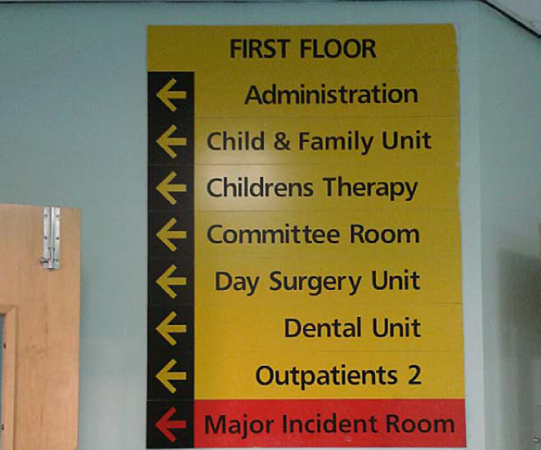Tips For Preparing For An Appointment With Your Consultant

Planning is key for making the most of your appointment
With doctors under more pressure than ever to stick to appointment times, it’s really important that we as patients get the most out of our allotted time slots with our specialist. Sometimes we wait for months on end just to get an appointment letter through the post and when the appointment day finally arrives, we are too caught up in emotion to objectively address the important matters that we so desperately need help with.
Health management, like management of anything, requires effective planning. I have learnt to plan and prepare for my appointments the same way I plan and prepare for any important meeting or event. Here are my tips to help you do the same:
- Know your objective Think carefully about what you’d like the outcome of your appointment to be. Would you like your Gastroenterologist to explore drug treatments with you? Would you like your surgeon to consider more imaging before putting your name on the surgery list? Or do you have no idea and simply want to tell the doctor what’s wrong? Either way, if you’ve outlined your objective(s) at the start of the appointment, it will be easier for you and your consultant to stay focussed on those key points. But also bear in mind that the doctor might also have a list of things that he/she needs to cover.
- Make a list Chances are you only see your specialist every 3, 6 or 12 months, so it’s really useful to make a list of all the things you’d like to ask or tell the doctor before the appointment. This could include symptoms you’ve been experiencing, any patterns you’ve noticed in the behaviour of your body or something that you’d simply like their opinion on. Don’t be afraid to make notes during the appointment, just as the consultant might do.
- Write down key dates I’ve lost count of the number of times a consultant has asked me when my last MRI, blood test or procedure was and I, assuming that the consultant would already be aware of these dates, did not bother to memorise or write them down. Although the consultant can always look this information up in your files, it wastes valuable time that you could have otherwise spent addressing your objectives.
- Bring copies of relevant documentation The previous point extends to test results, notes from appointments with other specialists and any other letters that you might have received a copy of. This is especially important if you are seeing specialists from multiple disciplines. If this is true for you, your healthcare is more complex and information isn’t always communicated between departments. Make sure you take copies of documents and not originals, in case the consultant asks to keep them.
- Prepare yourself emotionally Although last on the list, at times this can be the most important thing you need to do. I’ve written multiple times about how poor physical health has been detrimental to my mental health. When in this vulnerable state it’s worth investing some time to prepare yourself for the fact that you may have to face some difficult questions and talk about things that are difficult to speak about. Remember, most of the time you don’t have to make any decisions on the spot. You can tell the doctor you’ll get back to him/her (by contacting their secretary or a nurse) after taking some time to think about it or talk it over with your loved ones.
I hope these tips have helped you. Do you have any advice on the topic of health management? If so, leave a comment below.
"Plan and prepare for appointments the same way you plan and prepare for any important meeting or event." - Rakhee Patel
Share this article:
by Rakhee Patel



About the author
I'm Rakhee, I have had a loop ileostomy and now have an end ileostomy due to Crohn's disease. Happy to share my journey!



